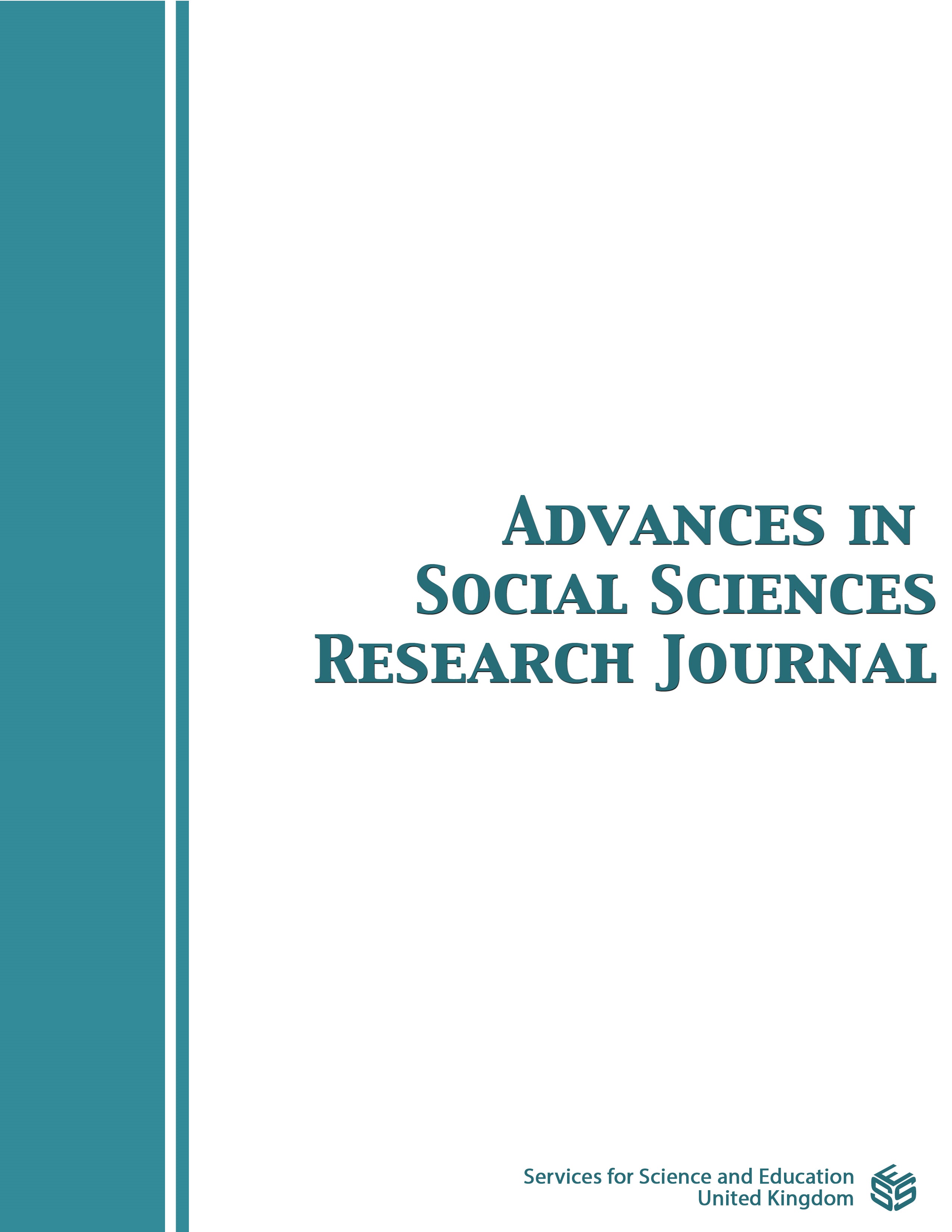Situating Norbert Elias’ Power Differential in a Critical Exploration of Violence in Chilean Education
DOI:
https://doi.org/10.14738/assrj.912.13673Keywords:
power differential, cultural violence, non-violence education, social justice, educational inequalityAbstract
Once hailed as a poster boy for neoliberalism, or what Milton Friedman called “The Miracle of Chile”, Chile has undergone a myriad of social and political changes that since 2011 have resulted in increased polarization and violent clashes between the opposing parties. The apex of this violence was reached in 2019, where civilians were blinded, public buses and subway stations burned and businesses vandalized in a series of violent acts that continued for weeks. Between October and November 2019, the country also experienced large peaceful demonstrations demanding greater equality towards women, sexual minorities and migrants (Chile has seen a surge in migration over the last 5 years, with 1.5 million people immigrating from Haiti, Venezuela and Colombia).
It is against this background that I began my research to investigate to what degree this direct, structural and cultural violence had spilled over into classrooms. My doctoral research, titled “Non-violence as a practice of equality: an exploration in Chilean higher education classrooms through participatory action research” sought to co-develop non-violent strategies to tackle violence in the way of exclusion, discrimination and any other manifestation within classroom settings.
This paper will explore the application of Elias’ notion of power differentials in the perpetration of cultural violence and the experience of violence by Chilean minorities as documented in my own research. I am particularly inspired by Norbert Elias’ work “The established and the outsiders”. Discussions with my research participants, all trainee teachers at Chilean universities, revealed that at the core of the instances of violence found lies a power imbalance and a view of those “outsiders” (migrants, lower income students, LGBTQI+) as less worthy and valuable and therefore victims to a wide range of violent acts resulting in exclusion and discrimination.
References
References:
Braun, V.& Clarke, V. (2006) Using thematic analysis in psychology, Qualitative Research in Psychology, 3(2), 77-101
Braun, V.& Clarke, V. (2022). Thematic Analysis: A Practical Guide. Sage
Butler, J. (2020). The Force of Nonviolence: An Ethico-Political Bind. Verso
Campos-Martinez, J. (2010). Las desigualdades educativas en Chile. Ensayos e Investigaciones del Foro Latinoamericano de politicas educativas, Issue 1.
Elias, N.& Scotson, J. (1965)[1994)]. The Established and the Outsiders. Sage
Galtung J. (1969), Violence, Peace, and Peace Research. Journal of Peace Research, 6(3):167-191.
Insituto Nacional de Estadisticas (2022). Informe de Resultados de la Estimacion de Personas Extranjeras Residented en Chile a Diciembre 31, 2021.ine.cl. https://www.ine.cl/docs/default-source/demografia-y-migracion/publicaciones-y-anuarios/migración-internacional/estimación-población-extranjera-en-chile-2018/estimación-población-extranjera-en-chile-2021-resultados.pdf?sfvrsn=d4fd5706_6
Jimenez, C., & Rojas, M. E. (2022). Escolares migrantes: Cuando hay mérito sin oportunidades. ciperchile.cl. https://www.ciperchile.cl/2022/05/16/cuando-hay-merito-sin-oportunidades/
Larrañaga, O., Cociña, M. & Frei, R. (2017). Desiguales: Origenes, Cambios y Desafios de la Brecha Social en Chile (United Nations Development Program). Santiago: Uqbar
Magill, K. & Rodriguez, A. (2022). Reframing Power, Violence and Education. Journal for Critical Education Policy Studies 20(2), 238 – 274.
Migration Policy Institute (2018), Amid Record Numbers of Arrivals, Chile Turns Rightward on Immigration. Retrieved at https://www.migrationpolicy.org/article/amid-record-numbers-arrivals-chile-turns-rightward-immigration
Ministerio de Educacion, Gobierno de Chile (2016 b). Orientaciones para la construccion de comunidades educativas inclusivas. Retrieved from: https://www.mineduc.cl/wp-content/uploads/sites/19/2017/03/Documento-Orientaciones-28.12.16.pdf
Mora Olate, M.L. (2018). Politica Educativa para migrantes en Chile: un silencio elocuente. Polis, Revista Latinoamericana, 49, 231 – 257.
Olavarria, D. & Campos-Martinez, J. (2020). Learning from Chile’s student movement: youth organising and neoliberal reaction. In Choudry, A. & Vally, S. (Eds.) The University and Social Justice. Pluto Press.
Oyarzún Maldonado, C., Soto González, R., & Moreno Díaz, K. (2017). Mercado escolar, marketing y segregación: Un estudio exploratorio sobre el uso de publicidad en escuelas de Santiago de Chile. Revista Educación, Política Y Sociedad, 2(2), 50–68
Ruggiero, V. (2019). Visions of Political Violence. Routledge
Sandoval, R. (2016). Hacia una Politica Nacional Migratoria. In Tijoux, M.E. (Ed.) Racismo en Chile: La piel como marca de immigracion (p.103-112). Santiago: Universitaria
Thomas, D. R. (2006). A General Inductive Approach for Analyzing Qualitative Evaluation Data. American Journal of Evaluation, 27(2), 237–246.
Torres Rojas, E. (2016). Gobierno universitario en entornos de debate social en Chile. Observaciones desde
la Teoría de sistemas. Revista Latinoamericana, 15(43), 655-680
Žižek, S. (2008). Violence: Six Sideways Reflections. Big Ideas/Small Books
Downloads
Published
How to Cite
Issue
Section
License
Copyright (c) 2022 Gaston Bacquet

This work is licensed under a Creative Commons Attribution 4.0 International License.
Authors wishing to include figures, tables, or text passages that have already been published elsewhere are required to obtain permission from the copyright owner(s) for both the print and online format and to include evidence that such permission has been granted when submitting their papers. Any material received without such evidence will be assumed to originate from the authors.






